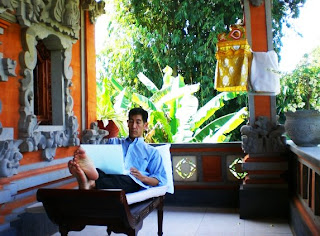
Here is another example of how the inner radar or gyroscope helps us to be positioned at the right place at the right time.
I rode to Pakse in southern Laos from the Thai border. I didn’t think 45 km would be much of an effort on a new bike, but the heat sapped my energy. I got into town and had time only for a quick shower. I had to trace where the books might be. They’d been sent the night before from Vientiane by bus, but as things are done in Laos, if you’re not right there when the bus arrives at four in the morning, you often have to go to the bus driver’s house or find out where he’s sleeping. In this case, I had to cycle 20 minutes to some intersection as instructed over the phone. So, I’ve found the bus and I’m told that someone took the books away in a truck that very morning (900 books). One voice in me said, “You’re screwed” and then the more sensible voice said, “The printer probably asked his friend in Pakse to pick them up.” It was confirmed and the next step on the treasure hunt was to track this man down in a store somewhere in Pakse. Of course the third voice that actually spoke whined, “nobody told meeee.”
I’d already had enough for a day. An iced coffee didn’t help and I had decided to go back to the guesthouse for a nap before chasing geese again. On the way back, I saw a large stationary/copy store and decided that I needed to buy some invoice sheets and carbon paper. I walked in and right there on my left was a complete shelf of momobooks. Not just one or two, but five tiers and five rows making an impressive display. The effect was just as I had imagined once in Luang Prabang when I was trying to convince some lady to replace her rack of postcards with my books, just for a week’s trial of sales. But I wasn’t in on this plan and voice #1 in my head said, “This is not possible.” Wiser voice #2 said, “Well, you’ve found the store.” Audible voice #3 didn’t convince the shop guy of my serendipity.
What’s the moral to this story? Maybe, “What we’re looking for has already arrived.” It’s back to the books, not only in the sense of selling them, but also in the sense of learning more how this mysterious world works.





